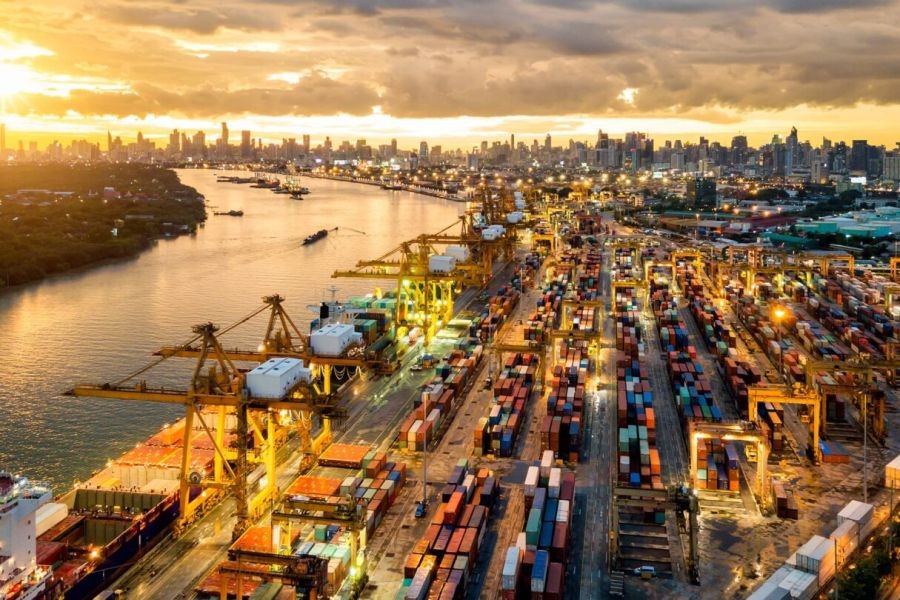Imagine a pristine coastline where the azure waves of the Pacific Ocean kiss the shores of New Zealand, a nation renowned for its breathtaking landscapes and abundant natural resources. Yet, beneath the surface of its lucrative seafood industry lies a complex tapestry of environmental challenges that threaten to unravel its future sustainability. Despite being an essential pillar of New Zealand's economy, the seafood sector faces formidable hurdles that require urgent attention and innovative solutions.
Future Forecast & Trends
The seafood industry in New Zealand is a significant contributor to its economy, generating over NZD 1.8 billion in export earnings annually, as reported by the New Zealand Ministry for Primary Industries. However, the industry's future hinges on its ability to navigate environmental challenges effectively.
climate change and Ocean Warming
climate change poses a significant threat to New Zealand's seafood industry. Rising ocean temperatures and acidification are altering marine ecosystems, impacting fish stocks and habitats. According to a 2023 report by the National Institute of Water and Atmospheric Research (NIWA), the warming of the Tasman Sea could lead to a reduction in fish populations, affecting both the supply and quality of seafood.
Overfishing and Sustainable Practices
Overfishing remains a pressing concern. Although New Zealand has implemented stringent fishing quotas, the enforcement of these regulations is challenging. A 2022 study by Massey University highlighted that illegal and unreported fishing activities account for up to 20% of the total catch, undermining sustainability efforts.
Innovative Solutions and Technological Advancements
To combat these challenges, the industry is turning to technology. The adoption of AI and machine learning for monitoring fish stocks and optimizing supply chains presents a promising avenue. Moreover, New Zealand's investment in sustainable aquaculture practices is a step towards reducing the environmental impact of seafood production. The government's Blue Economy initiative aims to increase aquaculture's contribution to NZD 3 billion by 2035, emphasizing eco-friendly practices.
Myth vs. Reality
Despite advancements, several myths persist about the seafood industry's environmental challenges in New Zealand.
Myth: New Zealand's Seafood Is Entirely Sustainable
Reality: While New Zealand is often hailed as a leader in sustainable seafood practices, the reality is more nuanced. A 2023 report by Forest & Bird, an environmental organization, revealed that several fish species are still overfished, challenging the notion of complete sustainability.
Myth: Technology Alone Can Solve Environmental Issues
Reality: While technology plays a crucial role in addressing environmental challenges, it is not a panacea. Effective policy-making and community engagement are equally important. The collaboration between government, industry, and local communities is essential to ensure holistic solutions.
Myth: Seafood Industry Challenges Are Solely Environmental
Reality: The challenges extend beyond environmental issues. Economic and social factors, such as fluctuating global demand and trade dynamics, also impact the industry's sustainability. A comprehensive approach that considers all these factors is necessary for long-term resilience.
Case Study: Sealord – Balancing Profit and Sustainability
Problem:Sealord, one of New Zealand's largest seafood companies, faced criticism for its environmental impact due to bycatch and overfishing concerns. Public pressure and declining fish stocks threatened its reputation and profitability.
Action:In response, Sealord implemented sustainable fishing practices, prioritizing selective fishing gear to minimize bycatch. The company also invested in research and development for aquaculture, aiming to diversify its seafood sources sustainably.
Result:Over three years, Sealord reported a 30% reduction in bycatch and a 15% increase in aquaculture output. The company's commitment to sustainability enhanced its brand reputation and secured long-term supply contracts with international partners.
Takeaway:This case study underscores the importance of integrating sustainable practices with business operations. New Zealand seafood companies can leverage technological innovations and community partnerships to balance profitability with environmental stewardship.
Biggest Mistakes to Avoid
- Ignoring Regulatory Compliance: Non-compliance with fishing quotas can lead to hefty fines and reputational damage. Companies should invest in compliance monitoring systems to ensure adherence to regulations.
- Overlooking Community Engagement: Failing to involve local communities in decision-making processes can lead to resistance and conflict. Engaging with stakeholders fosters cooperation and shared responsibility.
- Short-term Profit Focus: Prioritizing immediate profits over long-term sustainability can jeopardize future operations. Companies should adopt a long-term perspective, integrating sustainability into their core strategy.
Future of New Zealand's Seafood Industry
The future of New Zealand's seafood industry will be shaped by its response to environmental challenges and market demands. A 2023 Deloitte report predicts that by 2030, the industry could achieve a 25% reduction in carbon emissions by adopting renewable energy sources and sustainable practices.
Moreover, the rise of plant-based seafood alternatives presents both a challenge and an opportunity. Companies that diversify their product offerings to include alternative proteins could access new markets and consumer segments.
Final Takeaway & Call to Action
The New Zealand seafood industry stands at a crossroads, with the potential to lead globally in sustainable practices. By embracing technology, engaging communities, and committing to long-term sustainability, the industry can navigate its environmental challenges successfully.
Ready to make a difference? Join the conversation and share your thoughts on how New Zealand's seafood industry can overcome its challenges. Together, we can shape a sustainable future for our oceans and economy.
People Also Ask (FAQ)
- How does climate change impact New Zealand's seafood industry?climate change affects fish stocks due to rising ocean temperatures and acidification, threatening the industry's sustainability.
- What are the benefits of sustainable aquaculture?Sustainable aquaculture reduces environmental impact, enhances fish stock resilience, and supports economic growth through increased production efficiency.
Related Search Queries
- New Zealand seafood industry challenges
- Sustainable fishing practices in NZ
- Impact of climate change on seafood
- Technological advancements in aquaculture
- Environmental policies in New Zealand































